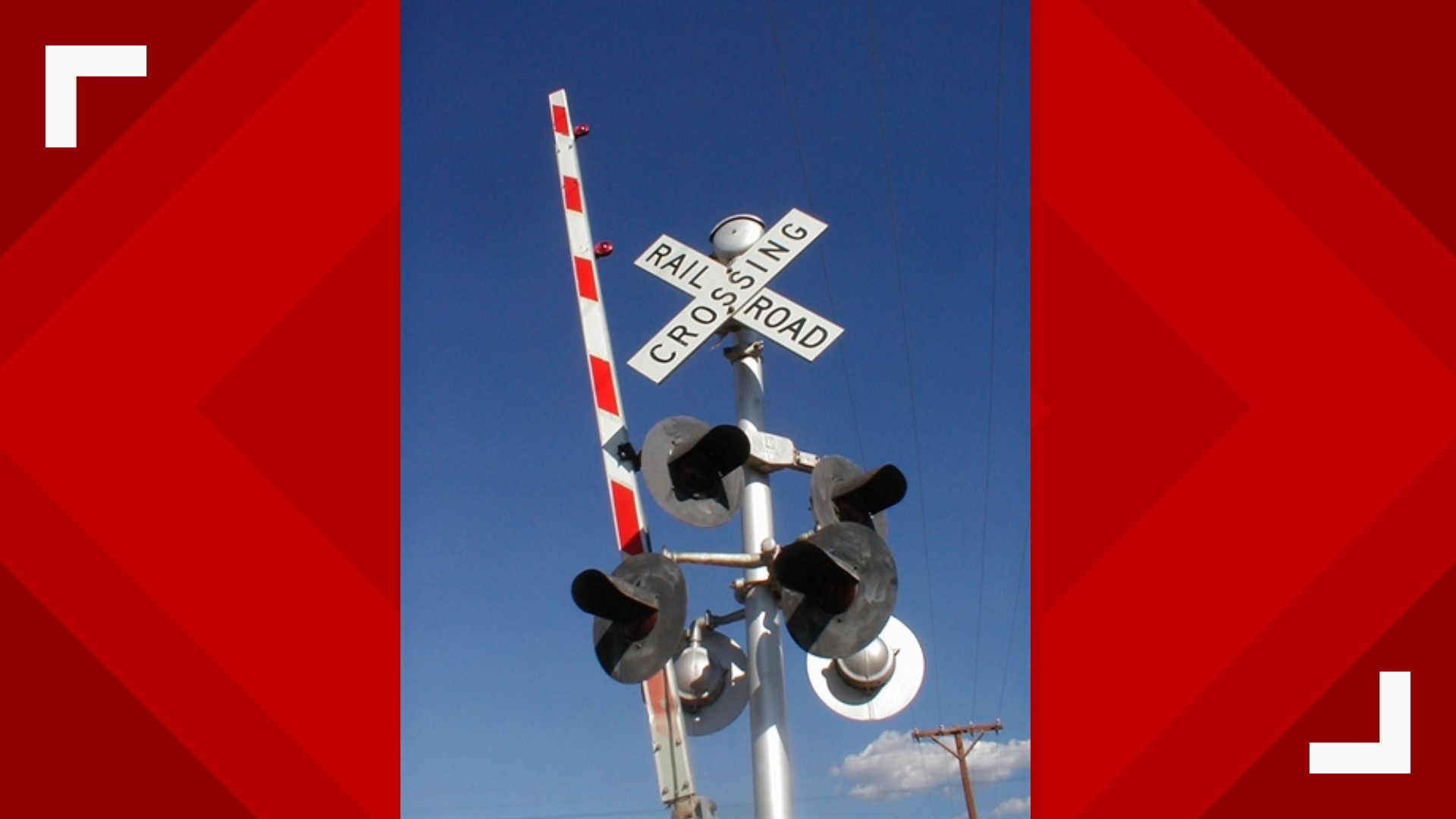TEMPLE, Texas — After a Temple woman contacted KCEN Channel 6 about her neighborhood being trapped, sometimes for hours, by a Union Pacific train, investigative reporter Andrew Moore dug a little a deeper to get answers to some of the questions you've been asking.
Rhonda Juarez told Channel 6 that trains stop several times a week on the tracks in an East Temple neighborhood, leaving the five families who live in the area with no way in or out.
Jaurez said she contacted Union Pacific and was told by company representatives:
"We park our train there because we don't pay overtime, so we pull our crew off and when a new crew comes, that's when the train will move." she said.
After the first story, the situation left Channel 6 with a number of questions that Moore set out to answer.
How long can a train block a railroad crossing?
The state of Texas currently does not have any statute to enforce time limits on how long a railroad company can block a crossing, according to TxDOT.gov. In 2001, the Fifth Circuit Court of Appeals ruled that federal laws preempt state anti-blocking statutes. Section 471.007 was removed from the Texas Transportation Code per the Texas attorney general's opinion in June 2005.
Who can impose a law regulating how long a train is allowed to block a railroad crossing?
This turned out to be more complicated than expected.
According to the Texas Department of Transportation website, the only legitimate authority to regulate blocked crossings is the federal government
Multiple times in the past, the Federal Railroad Administration has been requested to begin the rulemaking process to determine effective measures to regulate blocked crossings, the website said. Federal Railroad Safety Authorization Act of 1994, 49 U.S.C. § 20101 et seq. (2000), is the main source of the railroad industry’s contention that state and local laws are not enforceable.
However, Author Gallow with the Federal Railroad Administration told Channel 6 today, "There is no federal law or regulation on the amount of time a train may block a public highway-rail grade crossing, but states and localities are not precluded from enacting and enforcing their own laws."
According to the Federal Railroad Administration, the state of Texas could try to pass additional laws and city laws could still be valid, though they could be challenged in court.
If a train is blocking a crossing, what should I do?
First, be patient. Railroads and railroaders do not intentionally block crossings; unavoidable circumstances and rules to protect public safety sometimes necessitate that trains block intersections.
Common reasons for a blocked crossing are waiting on the arrival of another train to pass or waiting to enter a rail yard. Occasionally, there are minor mechanical problems with locomotives or cars. By Federal law, railroad employees cannot work more than 12 hours per day, so there are instances when a crew has met those limits and are waiting for another crew to relieve them.
Got a news tip? Contact us at news@kcentv.com.
Also popular on KCENTV.com:

